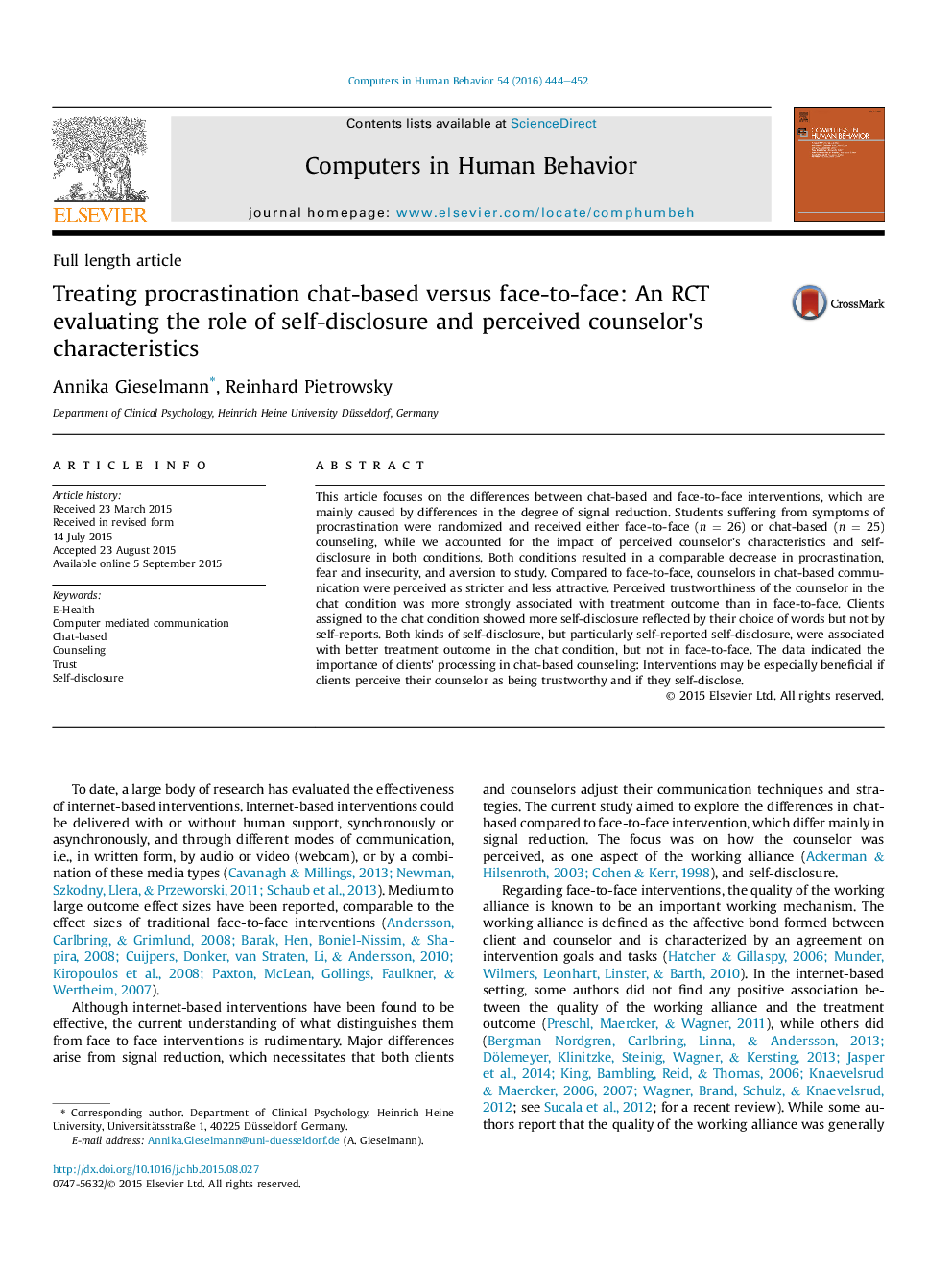| Article ID | Journal | Published Year | Pages | File Type |
|---|---|---|---|---|
| 6837877 | Computers in Human Behavior | 2016 | 9 Pages |
Abstract
This article focuses on the differences between chat-based and face-to-face interventions, which are mainly caused by differences in the degree of signal reduction. Students suffering from symptoms of procrastination were randomized and received either face-to-face (n = 26) or chat-based (n = 25) counseling, while we accounted for the impact of perceived counselor's characteristics and self-disclosure in both conditions. Both conditions resulted in a comparable decrease in procrastination, fear and insecurity, and aversion to study. Compared to face-to-face, counselors in chat-based communication were perceived as stricter and less attractive. Perceived trustworthiness of the counselor in the chat condition was more strongly associated with treatment outcome than in face-to-face. Clients assigned to the chat condition showed more self-disclosure reflected by their choice of words but not by self-reports. Both kinds of self-disclosure, but particularly self-reported self-disclosure, were associated with better treatment outcome in the chat condition, but not in face-to-face. The data indicated the importance of clients' processing in chat-based counseling: Interventions may be especially beneficial if clients perceive their counselor as being trustworthy and if they self-disclose.
Related Topics
Physical Sciences and Engineering
Computer Science
Computer Science Applications
Authors
Annika Gieselmann, Reinhard Pietrowsky,
